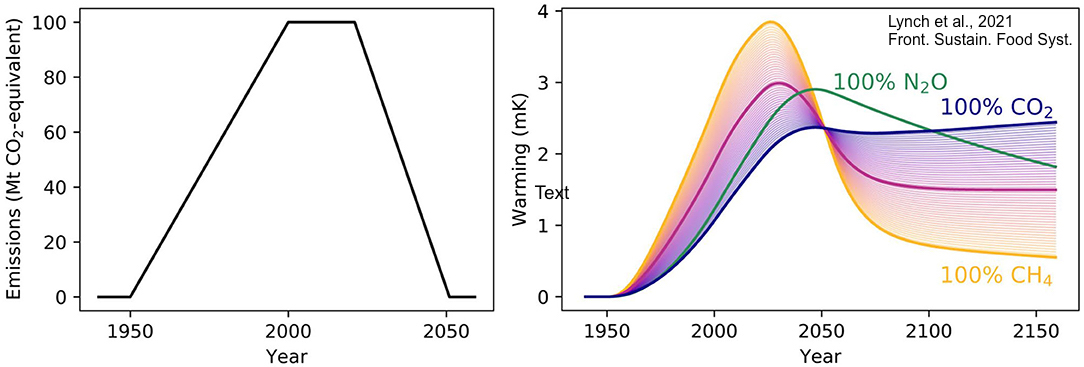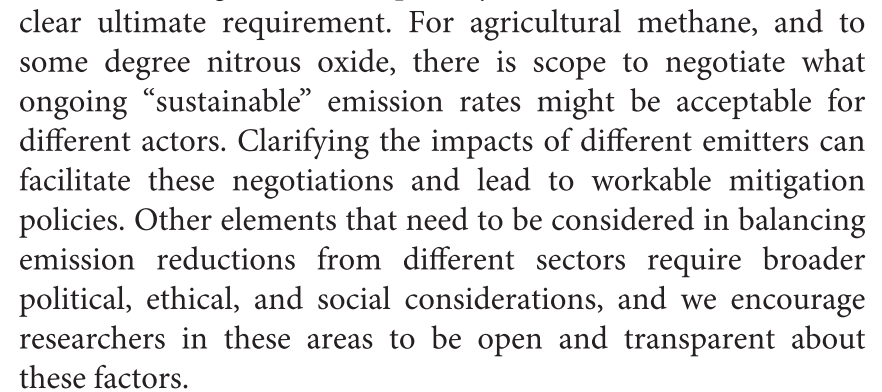Keen to share a new paper (by John Lynch, David Frame @ClimateFramo, Ray Pierrehumbert @ClimateBook, and I), given agricultural emissions are a perennial favourite on twitter! And of course, a #thread is a perfect reason to not read/write a paper or do that marking! 1/n
The key point to this perspective article is this figure, which shows the warming generated by the same amount of CO2-equivalent emissions (left panel), but emitted as CO2, methane (CH4) or nitrous oxide (N2O) 2/n
When emissions are ramping up (1950 to 2000), the CH4 generates the highest temperatures. Peak warming (from these emissions) is more than 1.5 times more when you emit ‘equivalent’ CH4 compared to CO2. 3/n
By 2150, the warming is about 4 times greater from the CO2 emissions than the ‘equivalent’ CH4 emissions. You can see why I am putting ‘equivalent’ in inverted commas! 4/n
Ultimately, this GWP100 equivalence was never designed to reflect temperature impacts. So in general, it doesn’t. So if we want to consider temperature impacts of cutting or growing CH4 emissions, it’s not the best equivalence metric. 5/n
Another consequence of this is that you don’t need to get CH4 emissions to net-zero in the same fundamental way that you do for CO2 emissions. This is how we conclude on this point (see image) 6/n
Essentially, the total amount of CO2 emitted by the time we globally reach net-zero CO2 emissions determines the amount of CO2-induced warming at that time (and going forward if held at net-zero). The same isn’t true of CH4 emissions. 7/n
For methane, deciding a globally sustainable amount of ongoing emissions (e.g. 30% or 50% or 60% of today’s emissions) determines the amount of CH4-induced warming at that time (and going forward if sustained at that level). 8/n
As this thread is in danger of becoming longer than the paper it’s summarising, I’ll end here! I think we lay things out pretty plainly in the paper so please read it if you have a question based on my thread! (link next) 9/n
Link to paper: Agriculture's Contribution to Climate Change and Role in Mitigation Is Distinct From Predominantly Fossil CO2-Emitting Sectors
https://www.frontiersin.org/articles/10.3389/fsufs.2020.518039/full (open access) n/n
https://www.frontiersin.org/articles/10.3389/fsufs.2020.518039/full (open access) n/n

 Read on Twitter
Read on Twitter



